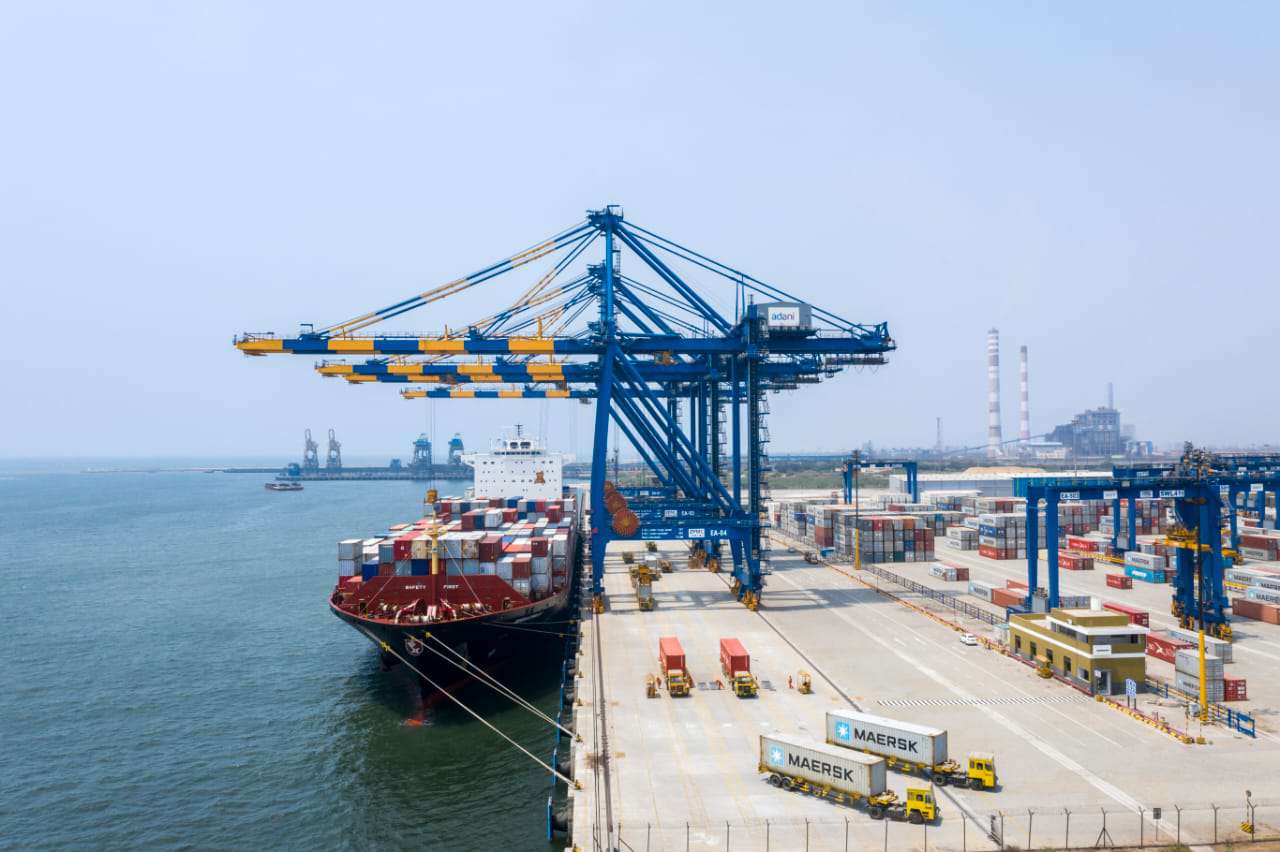Non-Aligned Nations Emerge as Key Trade Hubs as Businesses Adapt to a Fragmented World
📅 Maritime News: Global trade is undergoing a major transformation as businesses worldwide restructure their supply chains in response to rising geopolitical tensions, economic uncertainty, and shifting trade policies. A new report by Economist Impact and DP World, unveiled at the World Economic Forum in Davos, reveals that 75% of businesses are diversifying their supplier base rather than consolidating, aiming to reduce risks in an increasingly fragmented trade environment.
🔍 Key Findings: The New Trade Landscape
The fifth annual Trade in Transition study surveyed over 3,500 supply chain executives worldwide, revealing a dramatic shift in global trade dynamics:
✅ Rise of Non-Aligned Nations: Countries such as Vietnam, India, Mexico, UAE, and Brazil are emerging as crucial trade hubs. 71% of executives believe these nations help mitigate trade risks, while 69% see them as critical in filling supply gaps caused by global conflicts.
✅ Geopolitical Strategy Adjustments: 40% of businesses are increasing their U.S.-based sourcing, while 32% are implementing dual supply chains to hedge against political and economic risks.
✅ Friendshoring Gains Momentum: 34% of companies are relocating supply chains to politically aligned nations to navigate uncertainties tied to global power struggles.
✅ Economic Challenges: 33% of executives cite prolonged inflation and high interest rates as their top concerns, prompting shifts in supply chain and investment strategies.
🌍 Geopolitical Shifts & Economic Challenges Driving Change
The findings highlight growing concerns about the “America First” policies of the new U.S. administration, increasing protectionism, and evolving geopolitical alliances.
🛑 Traditional trade routes are being disrupted, prompting businesses to look towards alternative markets and suppliers.
🚀 AI and automation are becoming key tools in navigating this complex trade environment, allowing companies to optimize supply chain management and reduce costs.
📊 Speaking at the launch of the report, Sultan Ahmed bin Sulayem, Group Chairman and CEO of DP World, stated:
“Global trade today is more complex than ever, demanding agility, resilience, and innovation. At DP World, we provide businesses with the infrastructure, technology, and expertise to navigate this evolving landscape. The latest research offers crucial insights to help global trade adapt and thrive.”
📈 John Ferguson, Global Lead of New Globalisation at Economist Impact, added:
“In 2025 and beyond, trade will be shaped by three forces: geopolitical shifts, climate change, and AI-driven automation. Companies that remain agile, experiment with AI, and integrate risk management strategies will gain a competitive edge.”
📊 Short-Term & Long-Term Industry Impacts
🔹 Short-Term Impact
- Competitor Challenges: Businesses slow to adapt will face rising trade barriers, increased costs, and disrupted logistics.
- Benefits for Agile Businesses: Companies leveraging AI, automation, and diversified suppliers will have a competitive advantage.
- Impact on Partner Companies: Businesses collaborating with neutral trade hubs (e.g., India, UAE) will experience smoother logistics and reduced supply chain bottlenecks.
🔹 Long-Term Impact
🚀 Reshaping Global Trade Routes – Non-aligned nations will become essential intermediaries, reducing reliance on traditional global powers.
🤖 AI-Driven Trade Efficiencies – Automation will optimize logistics, reduce costs, and enhance risk management in supply chains.
🏆 Shift in Industry Leadership – Companies with multi-layered supply chain strategies will dominate the new trade landscape.
🚢 Impact on the Indian Maritime Industry
India is well-positioned to benefit from these global supply chain shifts:
📈 Increased Foreign Investment – As companies seek alternative supply routes, India’s manufacturing and logistics sector will attract global investors.
⚓ Higher Shipping Traffic – Indian ports will witness an uptick in cargo handling due to increased trade flows.
🚢 Expansion of Maritime Trade Partnerships – India will emerge as a key logistics and trade hub connecting Asia, the Middle East, and Europe.
🏗️ New Opportunities for Indian Exporters – As businesses seek diversified supply chains, Indian exporters can expand their global footprint.
📡 Technology & AI in Logistics – The adoption of smart ports, blockchain, and AI-driven supply chain solutions will boost India’s global competitiveness.
🔎 How Businesses Can Adapt to the New Trade Landscape
✅ Diversify Suppliers – Companies should reduce dependence on a single region and partner with emerging trade hubs like India, Vietnam, and Mexico.
✅ Invest in AI & Automation – Digital supply chain management tools, AI-driven analytics, and automation will help streamline operations and reduce costs.
✅ Develop Flexible Supply Chains – Companies should adopt dual-sourcing strategies, friendshoring, and alternative trade routes to ensure supply chain resilience.
✅ Monitor Geopolitical Trends – Businesses must stay updated on global policy changes and trade agreements to make informed strategic decisions.
✅ Strengthen Partnerships in India & UAE – Investing in Indian and UAE trade infrastructure will offer a stable and neutral trade environment.
🔮 The Future of Global Trade
With global supply chains evolving at an unprecedented pace, businesses that stay ahead of the curve by embracing technology, diversification, and strategic partnerships will thrive in this new era of global trade.
KEY INSIGHTS FROM TRADE IN TRANSITION 2025
| Metric | Percentage | Notes |
| Businesses diversifying supplier bases
|
75%
|
Spreading risk and increasing resilience by
working with more partners |
| Neutral hubs as stability anchors
|
71%
|
Examples of Vietnam, Mexico, India, UAE, and Brazil |
| Neutral countries filling trade conflict gaps
|
69%
|
Cited as critical for mitigating geopolitical risks
|
| Increased US-based sourcing
|
40%
|
Adapting to a Republican-led administration
|
| Dual supply chain adoption on the rise
|
32%
|
Mitigates region-specific risks
|
| Rising friendshoring adoption
|
34%
|
Reducing exposure to great-power rivalries
|
| Chief concern: prolonged inflation and rates | 33%
|
Economic pressure remains a key issue |
| Source : Economist Impact | ||





One thought on “Global Supply Chains Undergo Rapid Transformation”